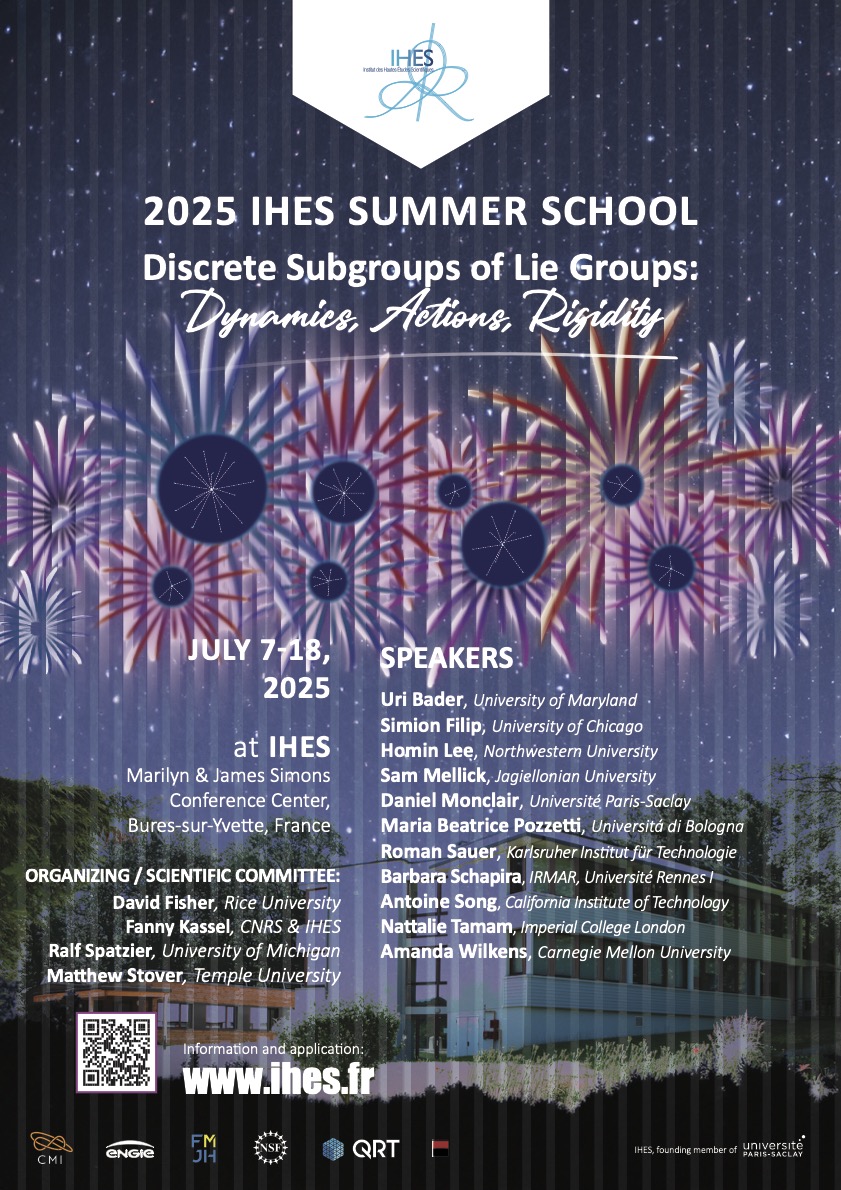Aspects of Geometric Group Theory
Date: 8 - 19 July 2019
Location: Institut des Hautes Études Scientifiques (IHÉS)
Event type: Research School
Organisers: Richard Canary (Michigan), Indira Chatterji (Nice), Fanny Kassel (IHÉS)
A group is a mathematical object encoding natural notions of symmetries and transformations. Geometric group theory is an area in mathematics devoted to the study of discrete groups by exploring connections between algebraic properties of such groups and topo- logical and geometric properties of spaces on which these groups act. As a distinct area, geometric group theory is relatively new, and became an identifiable branch of mathematics in the early 1990’s. Geometric group theory closely interacts with low-dimensional topology, hyperbolic geometry, Lie groups and homogeneous spaces, algebraic topology, computational group theory, and differential geometry. There are also substantial connections with complexity theory, mathematical logic, dynamical systems, probability theory, K-theory, and other areas of mathematics.
In this summer school the organizers will choose a few important trends in geometric group theory to teach to graduate students across mathematical fields, giving young people in several areas of mathematics such as algebra, geometry, dynamics, or topology some basics to either understand a few problems in geometric group theory, or use geometric group theory methods in their respective fields.
CMI Enhancement and Partnership Program
Related events
See all events
Arizona Winter School
University of Arizona

Summer Research Institute in Algebraic Geometry
Colorado State University

Discrete Subgroups of Lie Groups: Dynamics, Actions, Rigidity
IHES